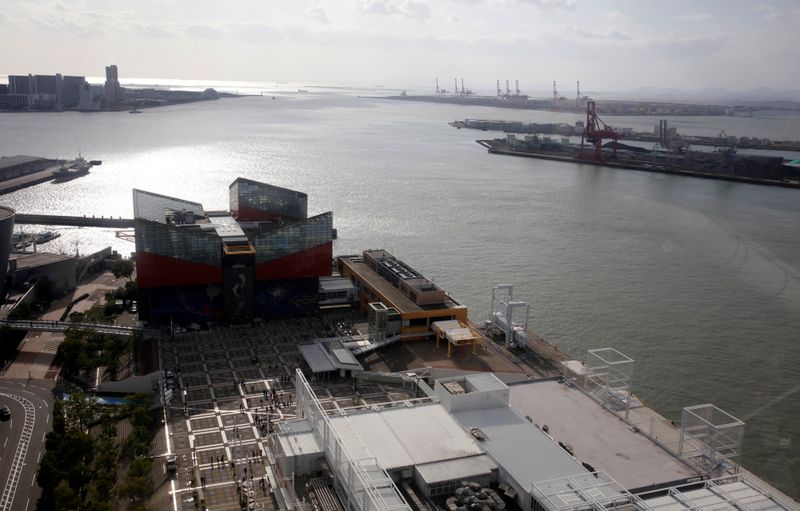TOKYO (Reuters) - Japan's factory activity shrank faster than initially estimated in April, a manufacturing survey showed on Friday, as the coronavirus hit to the economy deepened, with declines in product orders and output accelerating.
The final au Jibun Bank Japan Manufacturing Purchasing Managers' Index (PMI) fell to a seasonally adjusted 41.9 from a final 44.8 in March, its lowest since April 2009, and showing a steeper contraction than the 43.7 seen in a preliminary reading last week.
The decline in activity bodes ill for the world's third-largest economy, which faces a prolonged downturn due to its export dependence and fragile domestic consumption.
The survey showed both output and new orders contracted at the fastest pace since early 2009, as the pandemic knocked overseas and domestic demand, setting off orders cancellations and factory closures.
"Japan's manufacturing downturn deepened in April as international supply chain paralysis intensified and global demand sank further," said Joe Hayes, economist at IHS Markit (NYSE:INFO), which compiled the survey.
"Factory shutdowns and below-capacity operations overseas are having a cascading effect on Japanese goods producers, who in turn are cutting or completely suspending production due to closures at their clients and suppliers."
Employment conditions at manufacturers worsened for a second month during April, with the rate of decline accelerating to the fastest in more than a decade.
They also reported the most negative outlook for output over the next 12 months since IHS Markit started tracking the future outlook in July 2012. Firms said they expect to adjust their production schedules over the coming year in response to falling demand.
Prime Minister Shinzo Abe's government last week expanded its spending package to a record $1.1 trillion yen to include cash payouts to every citizen, as the coronavirus outbreak threatens to hit broad parts of the economy.

The economy shrank an annualised 7.1% in the final quarter of last year due to the blow from the U.S.-China trade war and last October's sales tax hike.
